Building animal health resilience in the Kingdom of Tonga
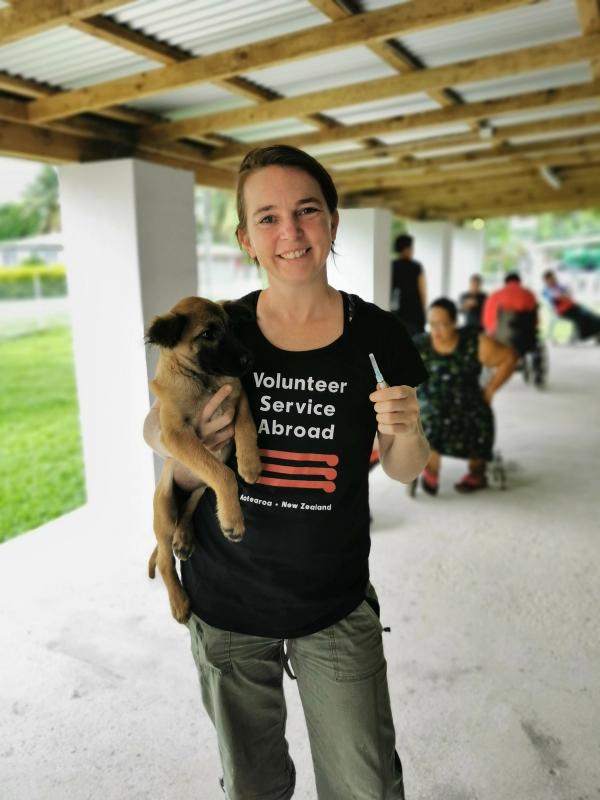

Like many Pacific nations, Tonga faces unique challenges in caring for its animals. With no qualified veterinarians or veterinary nurses living in the Kingdom, the responsibility falls on the dedicated livestock officers at Tonga’s Ministry of Agriculture, Food and Forests (MAFF) Livestock division. While these officers work tirelessly, most have had limited opportunities for formal training or ongoing mentorship. Given their vital role in safeguarding the health of animals in Tonga and, in some cases the livelihoods of the families who depend on them, this gap in skills and support is significant.
This is where Volunteer Service Abroad Te Tūao Tāwāhi (VSA) volunteers are making a real difference. Working in partnership with the MAFF Livestock division, VSA volunteer Jade Hackney is not only caring for animals in need but also helping to strengthen the long-term future of animal welfare in Tonga. Her role is as much about education and mentoring as it is about treatment, and the impact of her work is already being seen across the Kingdom.
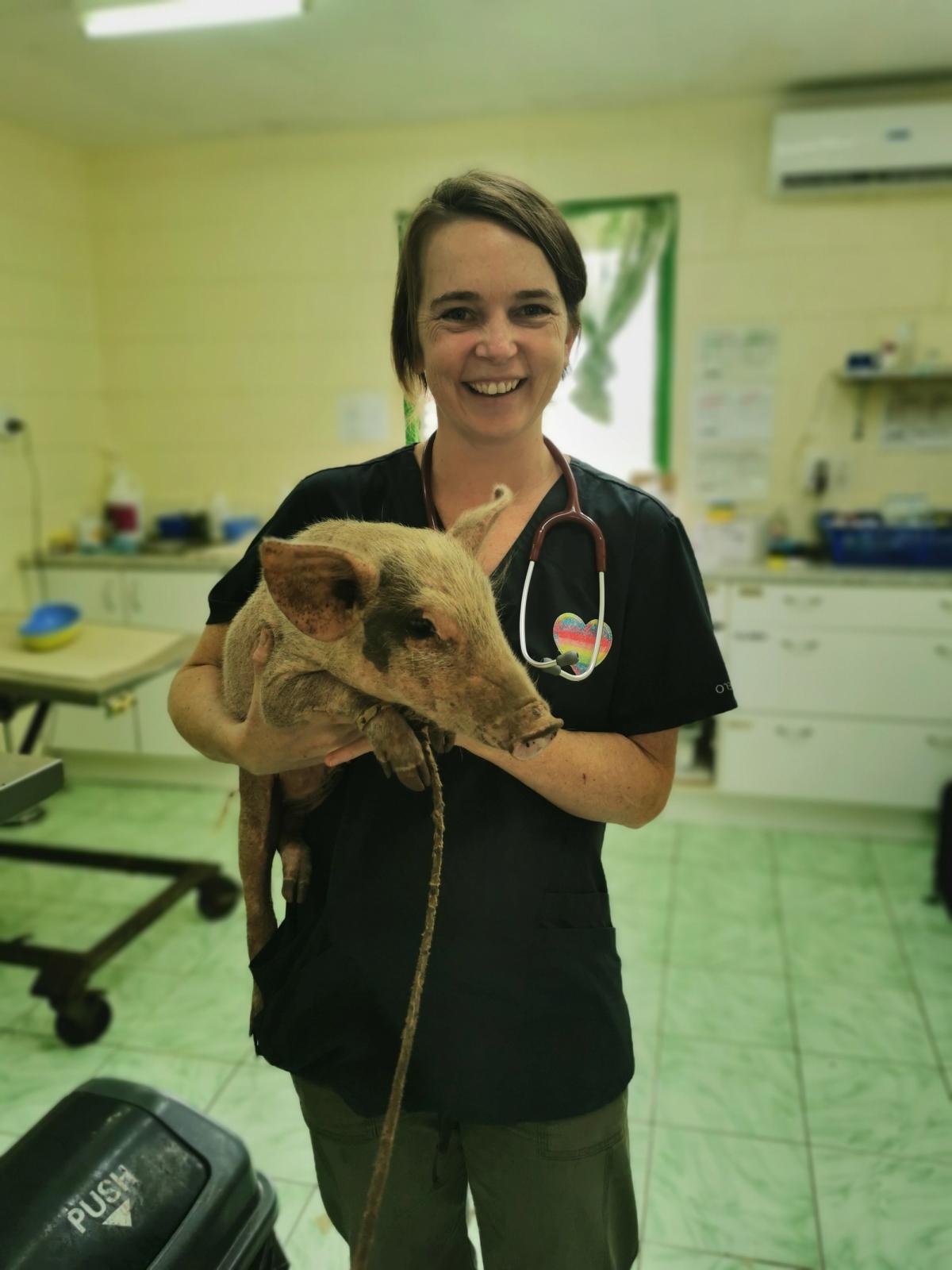

One important area Jade focuses on is teaching the “Creating Health” model of animal care – crucial in a country that usually has no permanent vet. This approach recognises that prevention is just important as treatment, especially in a country where veterinary services are hard to come by. Her latest teaching on how to age puppies by examining their teeth enables MAFF Livestock division staff to accurately determine with the puppy should start eating solid food, when to worm, flea and vaccinate them. Most importantly, this vital information is required when recommending an appropriate diet.
This guidance is valuable in Tonga, where puppies are often fed bread and cow’s milk – well-intentioned, but ultimately inadequate for healthy development. With Jade’s support, officers now advise owners to feed puppies an age-appropriate diet including whole foods, coconut water and chicken broth instead. As a result, many undernourished animals are regaining their health and strength. “If we can create healthy animals, we don’t have to treat diseases,” she says. “Food is medicine and the body is the best doctor in the room.”
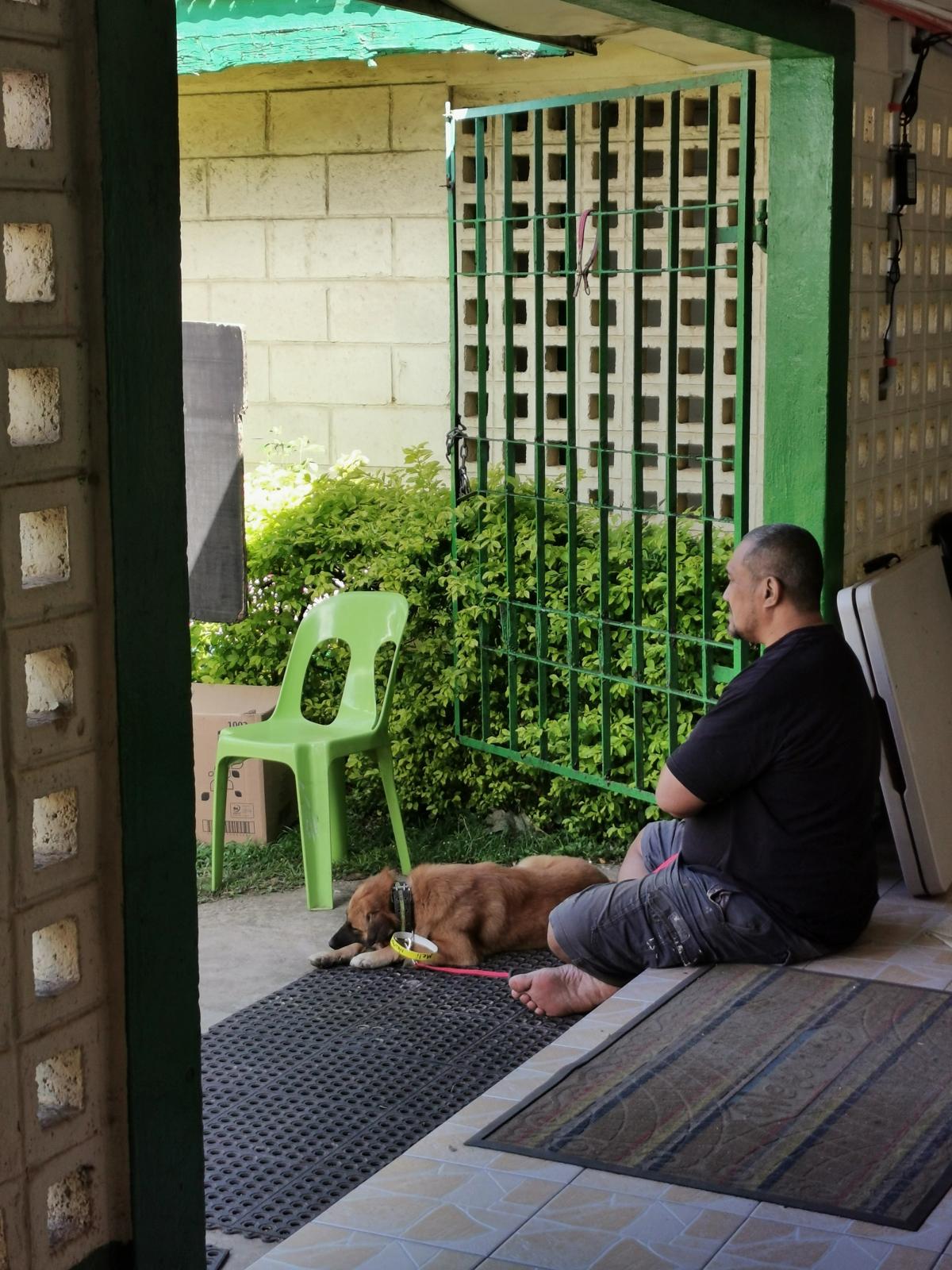

Jade’s impact also extends to areas where there are no laws governing veterinary procedures. There is currently no veterinary law in Tonga, which means there are no restrictions on who can perform surgeries. In the absence of qualified veterinarians, MAFF Livestock division staff are often required to carry out procedures such as stitching wounds. Jade is equipping them with the knowledge and confidence to perform procedures like stitching wounds safely and humanely as possible, and as a result lifting the standard of care for the animals.
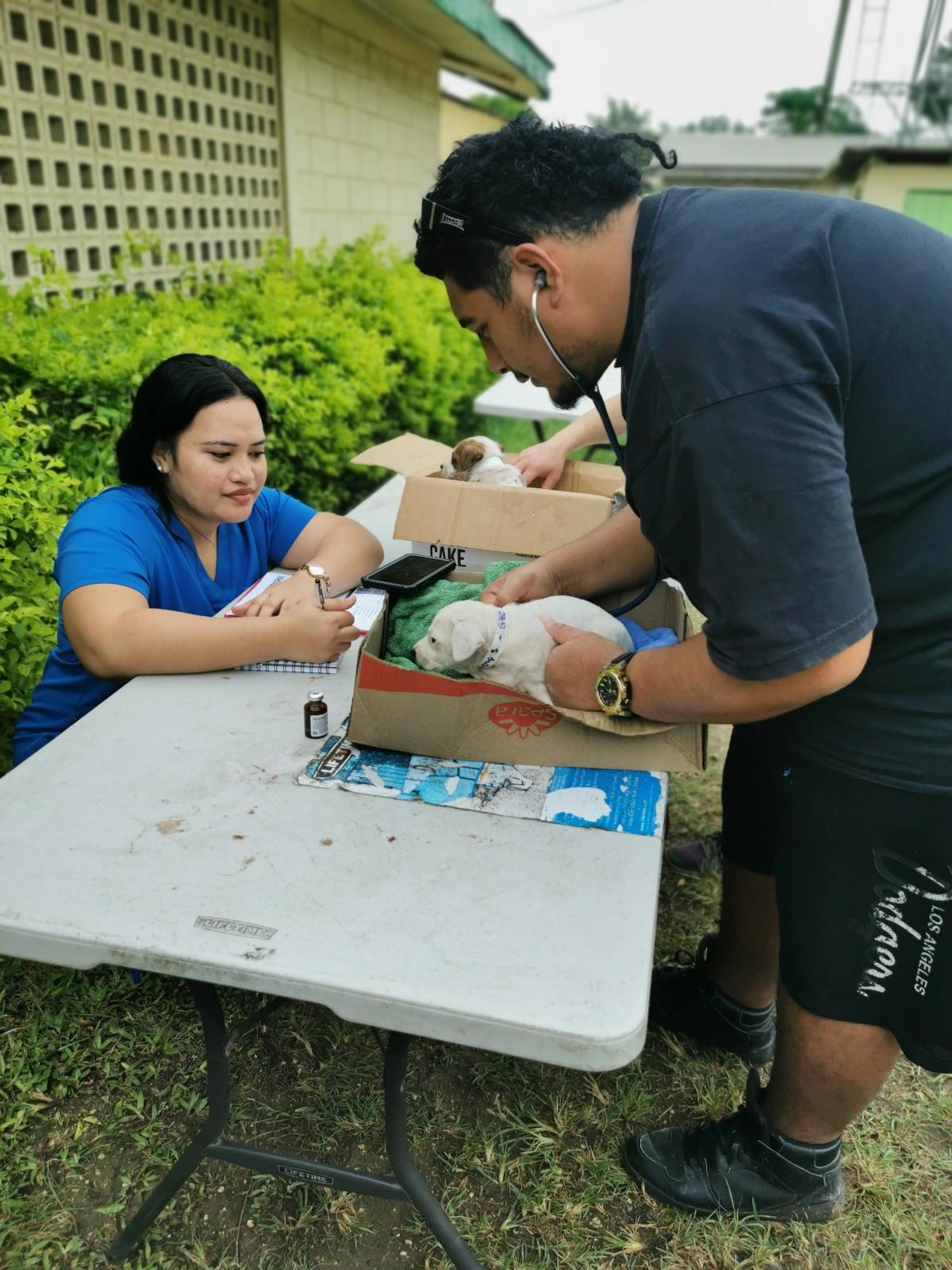

The value of Jade’s support has been recognised by the MAFF Livestock division team. Staff member Miu describes Jade as “a teacher to us because of her experience and many years working in the field,” and she also highlights Jade’s role in planning workshops and shaping the future of animal services in Tonga.
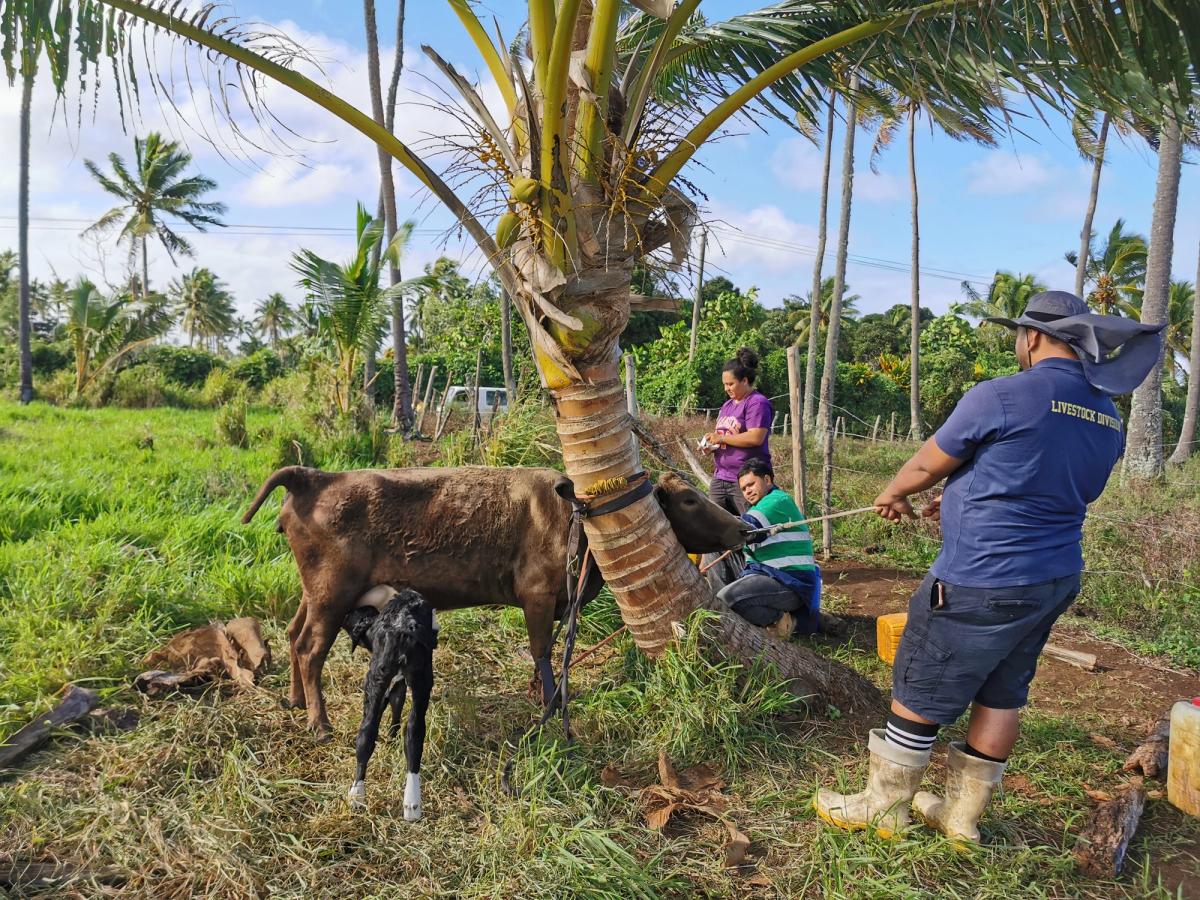

These practical steps may seem small, but they are the kind of proactive support that prevents common health issues and help farmers avoid unnecessary hardship. Like many VSA volunteers, Jade is helping to create sustainable systems of care that will outlast any single volunteer placement. Her work shows that real change in Tonga’s animal health sector begins not just with treating illness, but with building the skills, trust and resilience of the people caring for animals every day.


VSA volunteer Jade Hackney